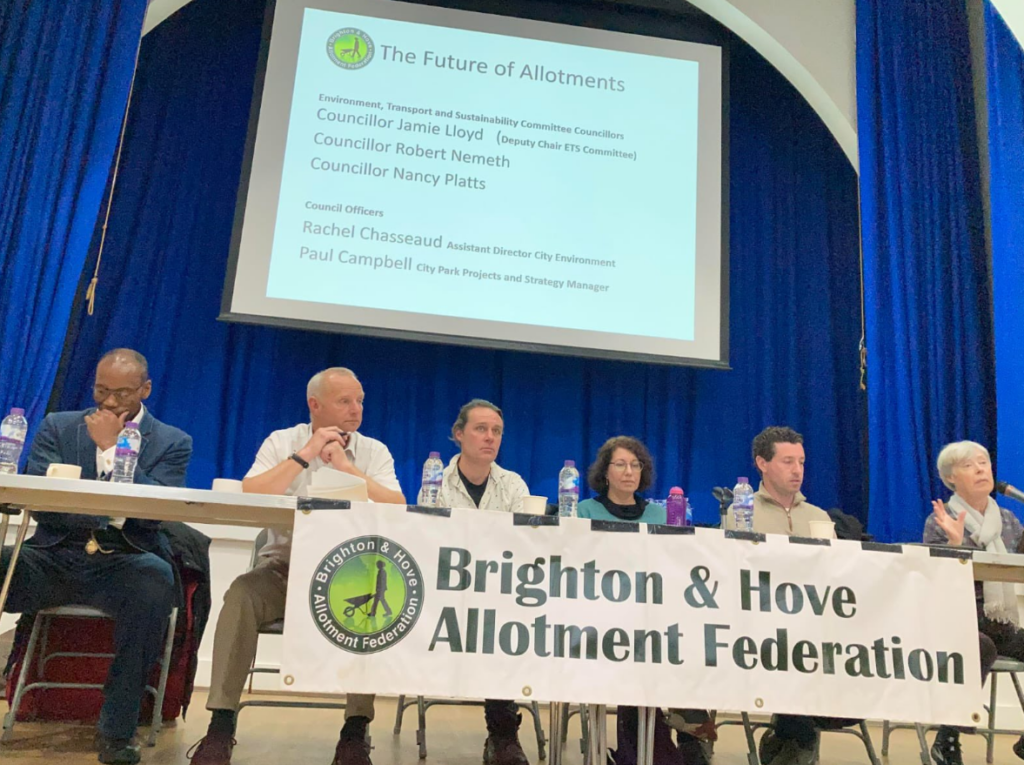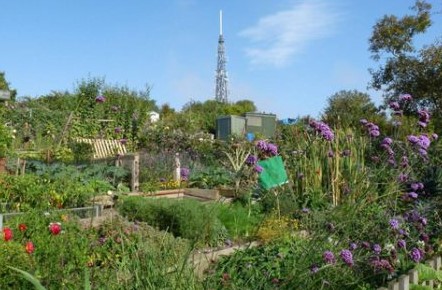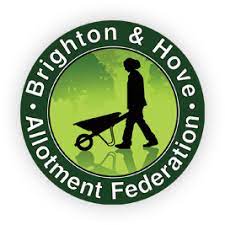A new report from the Brighton and Hove Allotment Federation (BHAF) provides evidence that allotments, rather than being a drain on council resources, are a valuable asset to the city.
Beyond the simple calculation of the costs of running allotments minus the rents paid by plot holders to the council as landlord, the report estimates their value in other terms.
These include reducing the city’s food-growing carbon footprint, the benefits to the physical and mental health of plot holders, biodiversity, carbon storage, and flood prevention – and the reduction in processing packaging and food waste.
The report formed the centrepiece of the presentations and discussions at the BHAF annual general meeting held in a packed hall at Community Base on Wednesday (6 April).
It was commissioned and funded by BHAF and written by Jim Mayor and Santiago Ripoll, of the Institute for Development Studies at Sussex University.
To read more about the report, click here. To read the full report, click here.
The report found that allotments save the city a minimum of £385,000 a year. Across Brighton and Hove’s 2,311 plots, this is equivalent to £167 a plot.
And this figure does not include the £130,000 in rent paid by plot holders to the council each year, nor the value of locally grown food worth an estimated £1.12 million.
But allotments benefit plot holders and the wider community in many more ways than just producing locally grown food.
The report also found
- Food grown on Brighton and Hove allotments reduced the city’s food-related carbon footprint by 1,050 tonnes at a financial value of £257,234.
- Brighton and Hove allotments improve the mental and physical health of plot holders, reducing healthcare costs due to lower incidences of stress, depression and loneliness and the lower BMI of plot holders. These health benefits have an estimated value of £32,132.
- Allotments are some of the most biodiverse areas of the city, providing vital green corridors for wildlife, supporting up to 54 times more bees than other council land and with soil that stores 578 more tonnes of carbon than grassland (helping to combat climate change). The minimum biodiversity value of the city’s allotments, plus their carbon storage and flood prevention value is £81,835.
- Zero packaging on food grown on allotments saves the council from having to process 17 tonnes of plastic waste, in addition to savings to the council from not having to process 63 tonnes of food waste going to compost. Together these save the council £14,500.
- The benefits of the city’s allotments mean that they subsidise other council departments and external agencies and contribute to the many of the council’s objectives. In doing so, allotments are good for plot holders and the wider community, the environment and the council’s finances, saving us all money.
…
The meeting ended with a Q&A panel discussion about the report and the future of allotments from a cross-party selection of councillors – Jamie Lloyd (Green), Robert Nemeth (Conservative) and Nancy Platts (Labour) – who sit on the council’s Environment, Transport and Sustainability Committee, which is responsible for allotments.

The panel also included two council officers with responsibility for allotments, Paul Campbell and Robert Walker.
BHAF chair Mark Carroll told the audience: “Demand for allotment plots had soared during the pandemic at the same time as the council’s allotments services experienced staff cuts.”
The number of people on waiting list increased from 1,172 in March 2019 to 2,785 in January 2022.
Council officer Robert Walker said that he “expected the demand for allotments to continue to grow”.
Councillor Nancy Platts described the report as “a masterstroke” and talked about the importance of telling people about the social benefits of allotments and the possibility of growing food locally for large institutions such as hospitals.
She also spoke about the importance of identifying more plots and the possibility of introducing starter plots, as well as accessing funding for allotments from health budgets.
Councillor Jamie Lloyd said that he would like to see improved communications between BHAF and the council and more open days so that “communities can see the benefits of allotments”.
Councillor Robert Nemeth spoke about the importance of allotments in “taking waste out of the waste stream” and “protecting allotments against future threats” from alternative land use.
He also said that the council needed to “tidy up its maintenance responsibility” for allotments and ensure all plots were let.
Councillors and council officers praised the report. At a meeting of the council’s Environment, Transport and Sustainability Committee in January, it was agreed that the social and environmental benefits of allotments identified by the report would be incorporated into the next version of the council’s review of its allotment service.
Dominic Furlong is a member of the Brighton and Hove Allotment Federation.












Many allotments empty under this Council whilst there is a massive waiting list for them. Allotments are indeed an important asset which helps individuals, the community and the city as a whole.